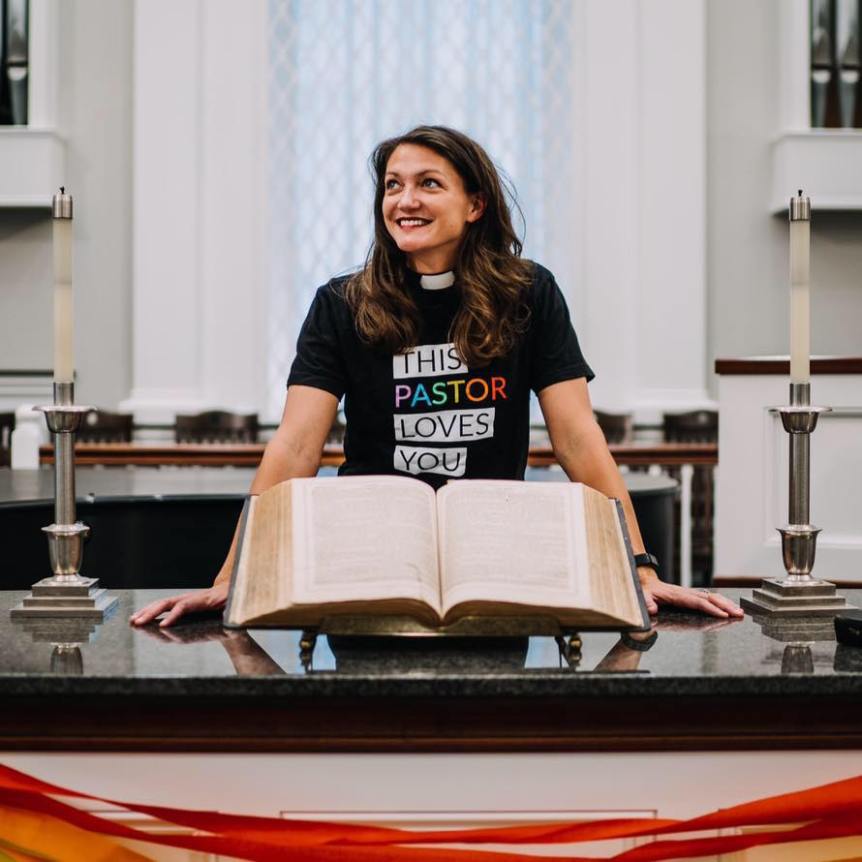Click Here for the Lectionary Texts
By: The Rev. Dr. Lori Walke
The Gospel lesson today is another one of those times where what Jesus does in a story is impossible for us to replicate. It falls under the same category as walking on water, opening the eyes of the blind, and restoring hearing to the deaf. There are just some things that Jesus did that we cannot do. Imagine, for instance, being at a funeral service and attempting to answer the question, “What would Jesus do?” based on this story. Who among us is willing to try to raise the dead? It is likely there would be no volunteers to make the first attempt, much less have a second go at it upon initial failure.
But of course, few (maybe none?) of us have ever witnessed anyone earnestly trying to raise someone from the dead. The dead are dead. We simply cannot do what Jesus did in this situation. Even pastors, who some might think have special training or at least a better chance, do not know these trade secrets. This is not covered in seminary (among other things, like church finances or how to avoid fights over the color of the carpet in the sanctuary).
As we consider this story in the context of All Saints Day, we might admit that we usually feel the same way about those we have named as saints. It is common to understand saints as a “special class of believers.” This is true even for those in traditions that do not award sainthood posthumously, after a formal ecclesiastical process. Saints have an “extra something” that the rest of us are missing. We simply cannot live up to their standard. They are saints, and we are not.
But in the New Testament, we find a different understanding of saints – they are living, breathing, active believers, and sometimes named as whole faith communities (i.e., Acts 9:13, 1 Corinthians 1:2, and Ephesians 4:12). They are ordinary Christians doing the work of building the kingdom of God on earth. Saint comes from the Latin word sanctus or holy. The basic definition of holy is “dedicated to God.” Saints, then, are people dedicated to God.
Even if we were to read the text without layering on developed doctrine, traditional teachings, or creeds regarding divinity, we would likely describe Jesus as a saint. Why? Well, the obvious answer is that he raised Lazarus from the dead.
But it could be for other reasons.
Leaning into the New Testament’s description of saint(s), we might reread the passage and reconsider what makes Jesus a saint. Perhaps it is because he showed empathy: “When Jesus saw her weeping, and the Jews who came with her also weeping, he was greatly disturbed in spirit and deeply moved . . . Jesus began to weep.” In a world where we are taught to keep a stiff upper lip and to “never let ‘em see you cry,” mourning with one another is a radical act.
Study the passage with an eye towards seeing the “ordinary” as “extraordinary.” In doing so, the powerful acts of Jesus expand far beyond raising Lazarus from the dead. When Mary expresses disappointment (and anger?) in Jesus, he does not leave in a huff. He understands she is grieving. Jesus also does not pack up and move out upon hearing that Lazarus is dead. Instead, he moves towards death, closer to people who have big feelings, and nearer to that which was considered unclean and untouchable. These actions are certainly profound, but none of them require divinity or special ecclesiastical dispensation. What else might be included.
Suddenly, in situations that might have before seemed like there was nothing to be done, the act of showing up takes on the quality of remarkable. It may scare us to know that we really can seriously ask, “What would Jesus do?” and be able to realistically model his actions, since they do not necessarily require superpowers. Not all will hear this as good news.
Hopefully, this understanding is also empowering. There is so much more we can do to respond faithfully in any given situation when we stop thinking that we need a superhero cape.
Happy All Saints Day, indeed.

